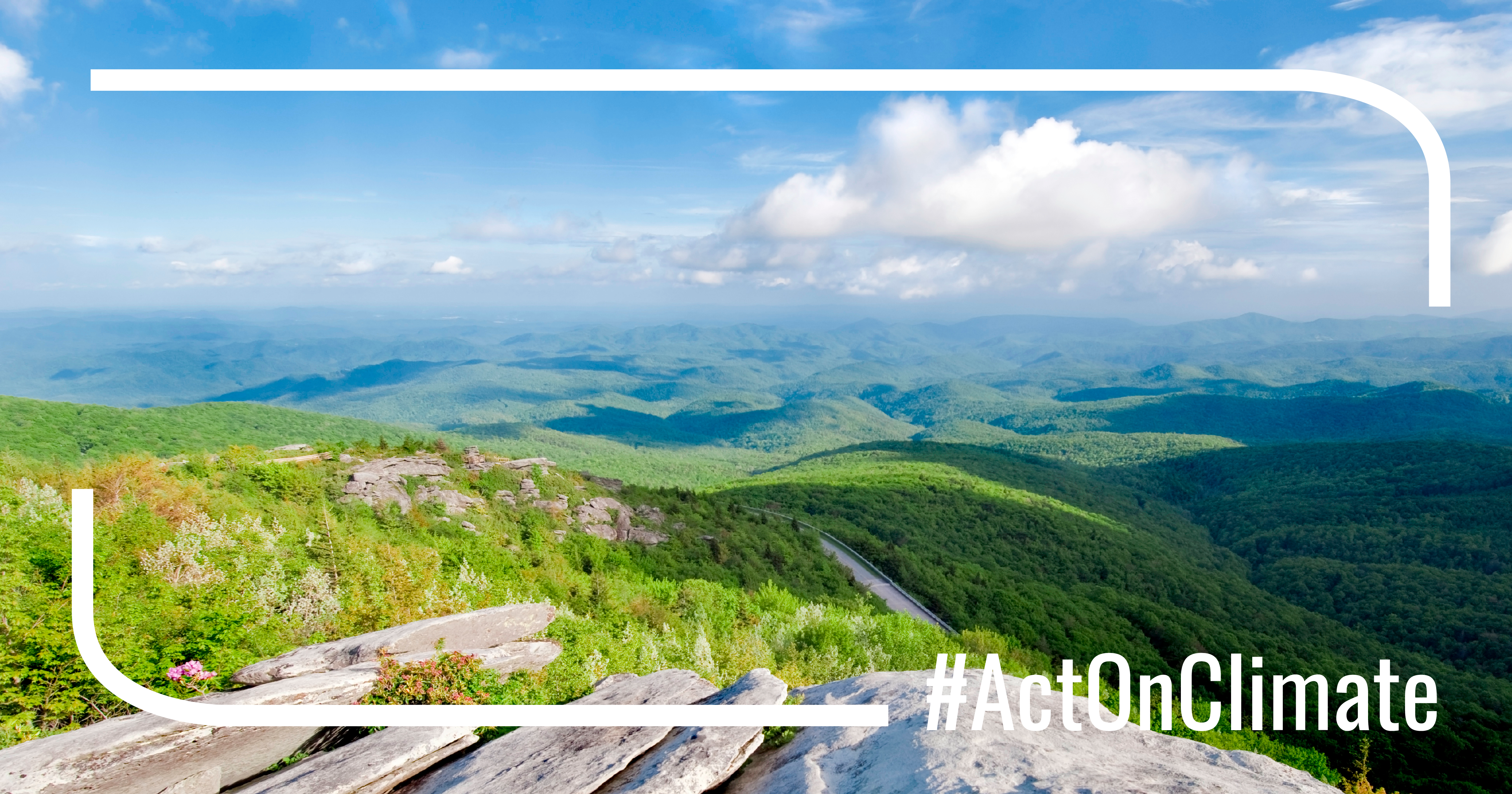VIRGINIA’S LATEST ATTEMPT TO BATTLE CLIMATE CHANGE IS IN DANGER

On April 19, the State Air Pollution Control Board will meet to vote on the final regulations to allow the Commonwealth to link to the Regional Greenhouse Gas Initiative (RGGI). These regulations will make Virginia the first Southern state to take such a bold step in reducing carbon pollution from power plants. However, all of this progress could be halted if Governor Northam doesn’t act soon.
In the final days of the 2019 legislative session, anti-climate amendments were added to the budget. Last Wednesday, the General Assembly rejected Governor Northam’s efforts to remove this language. The bad language intends to block Virginia from participating in regional compacts to address climate change. If left in the budget, it would prevent the Virginia Department of Environmental Quality (DEQ) from spending money on linking to RGGI as well as engaging in the Transportation Climate Initiative (TCI). Now, the Governor must veto these amendments out of the final budget.
Why It Matters:
- Governor Northam can protect Virginia’s clean air, coastal communities, and clean energy economy by vetoing budget amendments that block VA’s ability to act on climate. Virginia can and should be at the forefront of tackling climate change.
- Regional climate compacts like RGGI & TCI encourage investments in clean energy and transportation reform. Our families, communities, and economy cannot afford to be locked into a legacy of dirty fossil fuels.
- In the face of repeated federal rollbacks on core environmental protections, it is imperative that Virginia help lead the way on these issues. Governor Northam should veto the bad budget amendments.
- Climate change is one of the most pressing issues of our time, especially when it comes to its devastating impacts on Virginia’s most vulnerable communities. It is imperative that every level of government steps up to be a part of the solution. Governor Northam should protect our vulnerable communities by vetoing the bad budget language that would prevent the Commonwealth from taking climate action.
- Now is the time to grow our clean energy economy. Job growth in renewable energy and energy efficiency is booming in the United States. Virginia should not pass up the opportunity to bring good paying green jobs to the Commonwealth.
Learn More
REGIONAL GREENHOUSE GAS INITIATIVE (RGGI)
The Regional Greenhouse Gas Initiative (RGGI) is a cooperative effort that currently comprises nine East Coast states from Maine to Maryland, that caps and reduces carbon emissions from power plants. Under RGGI, power plants in participating states purchase allowances for every ton of carbon pollution that they emit. RGGI states agree among themselves on how many pollution allowances to offer for sale each year, thereby creating a cap on emissions, and they gradually lower the cap each year. It is a flexible, market-based system where member states set the carbon cap, and then power-plant owners decide how to stay below it. Revenue from the auction of pollution allowances goes back to the states to fund public benefit programs and initiatives decided by each state. RGGI works, creates jobs, reduces bills, and provides certainty.
TRANSPORTATION CLIMATE INITIATIVE (TCI)
This fall, Virginia officially joined the Transportation Climate Initiative (TCI). TCI is a regional collaboration of 12 Northeast and Mid-Atlantic states and the District of Columbia that seeks to improve transportation, develop the clean energy economy, and reduce carbon emissions from the transportation sector.
Transportation is the largest source of carbon pollution in the United States. Participating in TCI will allow Virginia to begin to tackle emissions from the transportation sector and invest in electrification, transit, and increased mobility for people across the Commonwealth.
STATE AIR POLLUTION CONTROL BOARD
The State Air Pollution Control Board is one of three regulatory boards composed of Virginia Citizens appointed by the Governor and is responsible for adopting many of Virginia’s environmental regulations. The Department of Environmental Quality administers the regulations as approved by the board.
The board has statutory authority to promulgate regulations and to approve certain permits. Before promulgating regulations required by environmental statutes, the board seeks information from the public, the regulated community and advisory committees. The board also becomes involved in permitting by conducting public hearings and approving certain types of permits. In cases where environmental laws or permit conditions are violated, the board may impose administrative sanctions and initiate legal action.
2019 GENERAL ASSEMBLY
The conservation community made another attempt this year to have the Commonwealth join the Regional Greenhouse Gas Initiative (RGGI) – a partnership of states designed to reduce carbon pollution from power plants. DEQ is currently moving forward to link to RGGI through executive action, however, in order to officially join RGGI and take advantage of at least $50 million generated through the trading program, the General Assembly must act.
This year’s legislation – HB2735 patroned by Delegate David Toscano in the House and SB1666 from Senator Lynwood Lewis – aimed to reduce carbon pollution by 30% by 2030 and provide vital funding for coastal resilience, energy efficiency, and economic development in Southwest Virginia. Despite coordinated efforts from the conservation community, both bills died in committee on party-line votes.
There were also efforts to stop climate action. Two bills from Delegate Charles Poindexter (HB2269; HB2611) sought to prohibit Virginia’s participation in both RGGI and the Transportation Climate Initiative (TCI). The Transportation Climate Initiative, much like RGGI, is a regional partnership of states collaborating to reduce carbon pollution. In TCI, states work together to curb emissions from the transportation sector, the largest source of greenhouse gas emissions in the nation. Fortunately, thanks in part to vocal opposition from VCN’s Network Partners, Governor Northam vetoed both bills.
